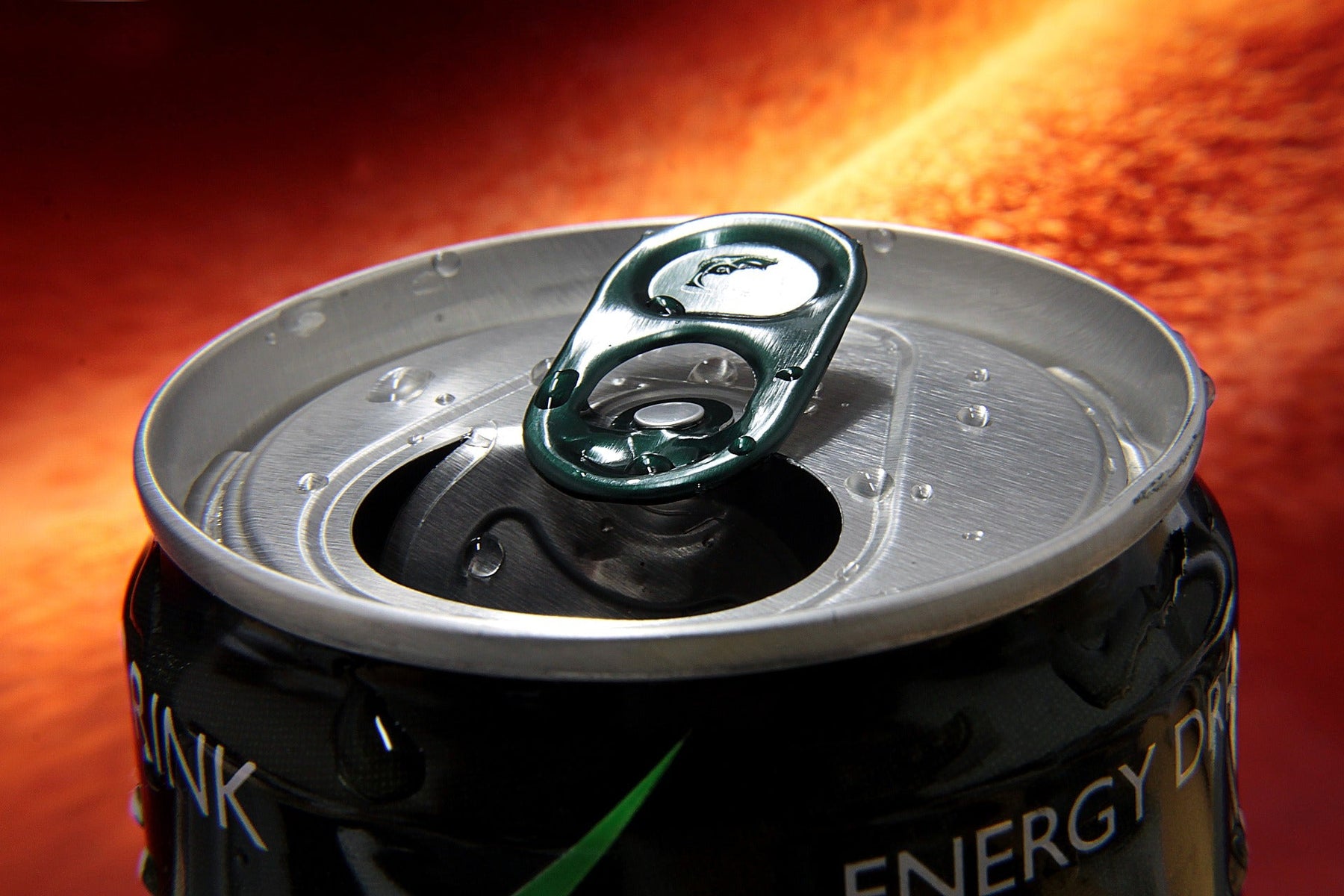
Are Energy Drinks Healthy?
You've likely encountered cases of energy drinks in a grocery store. You or people you know probably consume energy drinks. Because energy drinks are consumed, let's consider their health implications.
Many energy drinks do have some legitimately beneficial ingredients: B vitamins. Some energy drinks contain up to 4 of the 8 B vitamins. While this is obviously a good thing, seeing as B vitamins help the body get or create energy from the foods you eat, these B vitamins are the few clearly beneficial ingredients in energy drinks; the rest are likely ineffective and questionable.
Taurine, for example, is an amino acid that helps neurological development and various cardiovascular functions, but our bodies typically produce plenty of taurine, and not much is known about the effects of ingesting excess taurine. There are other amino acids sometimes included in energy drinks, like L-Carnitine, L-Tyrosine, and L-Phenylalanine, which serve useful purposes in the body, but are included in relatively small amounts, and thus are probably not significantly beneficial.
Energy drinks often contain various other stimulants. One such ingredient commonly included in energy drinks is guarana, a South American bean that contains roughly twice as much caffeine as a comparable coffee bean. In other words, it is a potent stimulant.
One of the most important things to consider when looking at the Supplement Facts of energy drinks is the serving size. Often the serving size of an energy drink is less than the amount of the drink contained in the whole can. A serving size is can even be 1/3 of the amount in the can. So, if you are planning to drink the entire energy drink at one time (as most who buy energy drinks intend to do), you have to multiply the supplement facts by 3 to figure out how much of each ingredient you’re getting.
For example, if the serving size of an energy drink contains 27g of sugar, and there are 3 servings in a can, and you drink the whole can, then you have not consumed 27g of sugar, but 81g of sugar. For the sake of comparison, consider that a can of a certain carbonated beverage contains about 39g of sugar. This means that our hypothetical energy drink contains almost 108% more grams of sugar than the can of soda. Added sugars are best consumed in moderation, and 81g in a single can is by no means moderate.
Ultimately, aside from B vitamins, small amounts of probably unnecessary amino acids, and various stimulants, energy drinks mostly consist of sugar and caffeine, and in large quantities. Energy drinks are probably not as dreadful as some people claim they are, but they are definitely not good for you.
So, what is to be done? Is there a healthier alternative to energy drinks? Of course. If you feel you need a little extra energy, consider our Energy & Stress supplement, which is loaded with 7 B-vitamins along with eleuthero and potassium, and is naturally sweetened with Stevia leaf extract.
And if you are looking for more information or you are interested in carrying or purchasing our products, please do not hesitate to call us at 800.995.6607 or send us an e-mail at customerservice@liquidhealth.us.
Sources/Information:
http://www.forbes.com/sites/daviddisalvo/2012/10/24/we-know-about-caffeine-in-energy-drinks-like-monster-but-what-about-the-other-ingredients/
http://www.caffeineinformer.com/sugar-in-drinks
http://www.webmd.com/food-recipes/features/whats-the-buzz-about-energy-drinks
http://www.mayoclinic.org/healthy-living/nutrition-and-healthy-eating/expert-answers/energy-drinks/faq-20058349


Leave a comment